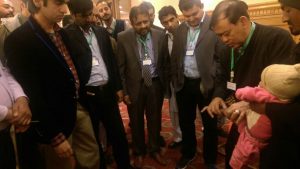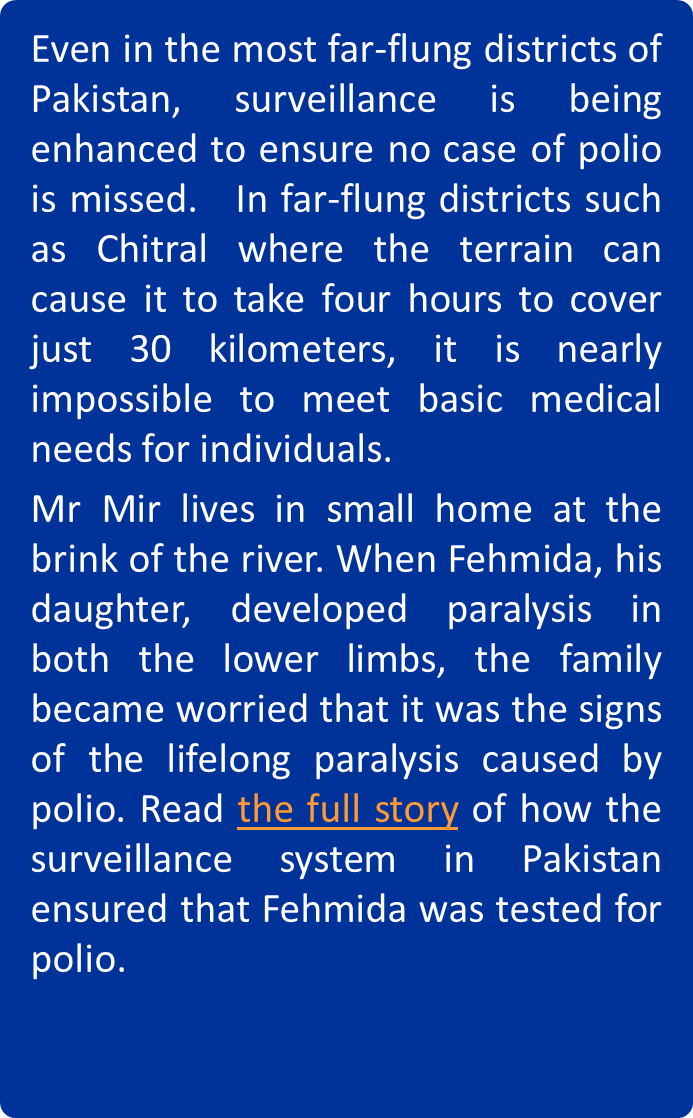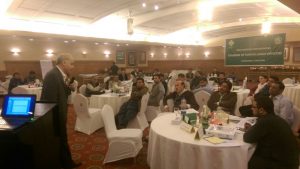Surveillance a top priority on Pakistan’s mission to eradicate polio
Pakistan is building a sensitive system to find every last virus by training surveillance officers, scaling up the workforce and increasing environmental surveillance

In the last stages of polio eradication, a sensitive surveillance system that can detect every single poliovirus is indispensable to find it in its last hiding places. In Pakistan, surveillance for cases of acute flaccid paralysis (AFP), subsequent testing and supplementary environmental sampling from the environment are informing the progress made towards eradication.
The poliovirus has proven to be a constant and resilient foe, continuing to show up in several areas of Pakistan. However, transmission is the lowest it has ever been. So far in 2016, fewer children have been paralysed by polio than at any other year in history, with the virus limited to a few areas in just three countries – Pakistan, Afghanistan and Nigeria. Pakistan has made strong progress in identifying and vaccinating missed children in the country’s most challenging areas, resulting in historical low numbers of cases this year. This remarkable achievement is especially visible in the core reservoir districts where persistent transmission has been the norm.
Training surveillance officers
The training of dedicated surveillance officers is key to ensuring Pakistan’s surveillance system is built strongly for eradication. A recent training for 32 district surveillance officers from across Pakistan highlighted the importance of effective AFP and environmental surveillance in tracking down the virus. World Health Organization’s National Surveillance Coordinator, Dr Tahir Malik said the training is essential to ensure surveillance officers down to the district level are highly skilled in identifying and investigating cases. “This is critical not only to orient new surveillance officers but also for old officers to bring alignment in surveillance procedures”. He further explained, “After training we expect from the participants to fully understand poliovirus epidemiology, AFP surveillance, but also in detail its components and mechanics in Pakistan.”
“The training, which also covered specifics on the role of laboratory, surveillance indicators, healthy children sampling and environmental surveillance, aims to bring all officers on one page in terms of programme priorities,” Dr Tahir said.
Constantly improving
Supported by contributions from the Canadian Government, the training is part of the programmes surveillance improvement plan that was recommended by the Technical Advisory Group (TAG) for Polio Eradication in Pakistan, to place a greater emphasis on disease surveillance including scaling up the workforce of dedicated staff, realigning environmental surveillance sites and ensuring surveillance targets are met by including private and informal health sectors, pushing for timely investigation, and reprioritizing reporting sites to focus on silent UCs and Tehsils.

The Chairman of the TAG Jean-Marc Olive, who was visiting Pakistan during the training, addressed the Surveillance officers from Punjab, Balochistan, FATA and KP. “Make the paediatrician your friend, talk continuously to the community, walk, move, sensitise, orient, visit facilities and care providers. Surveillance is not beautiful graphs on a laptop, it is hard field work,” he said. “Be proud of what you do for the children of Pakistan.”
The 2016-2017 National Emergency Action Plan for polio eradication also highlights the intensification of surveillance as a critical activity so that virus signal are picked up as early as possible and response initiated rapidly and aggressively. In response, the programme is working to engage private clinics, traditional healers and pharmacies to make it more likely that all cases of polio will be reported and immediate case response can be launched when needed.
Environmental surveillance
In addition, there has been an increase in the work being done for environmental surveillance. The number of sites that test for presence of the virus in sewage water has been increased to 43 sites across Pakistan’s highest risk areas and environmental samples are being taken more frequently, which is proving to support the programme to detect and track the virus, a critical step as the country edges closer to stopping transmission.
Leaving no stone unturned
Once Pakistan is able to demonstrate that no poliovirus is present, both from AFP surveillance and supplementary environmental surveillance, for three consecutive years, the country will be declared polio-free. Until that time Pakistan will continue to leave no stone unturned in pursuit of the virus and no child unvaccinated and vulnerable.













